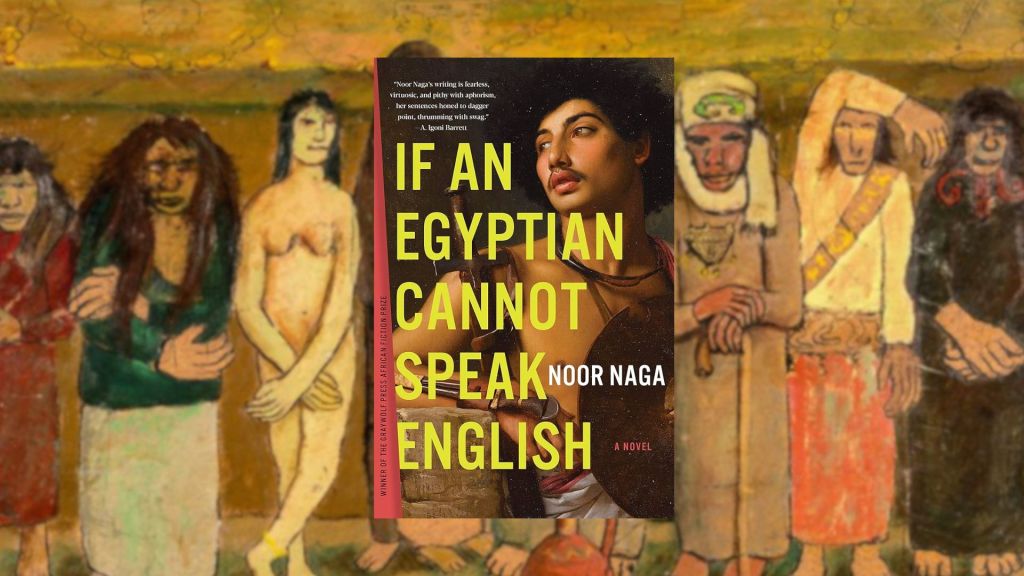Yesterday, I read ‘If an Egyptian cannot speak English’ by Noor Naga ☀️ or rather, listened to the audiobook, read by Amil El Gama and the author. 🎧 Their voices brought a sensitive and cautious tone to the protagonists.
This novel follows an Egyptian meet cute – the young Egyptian-American woman moves to Cairo and the boy from Shobrakheit. Their complex ethnic identities developed a tense underbelly to their relationship and quickly became a power struggle.
This book was in a list of Best Book Titles (i cant remember where) and I was sucked into the character’s lives. This book highlights the distance between people who visit their heritage and people who have never left. The differences between the American girl and the boy from Shobrakheit gave them both a reason to be interested and begrudge one another. Their backgrounds turn their relationship into something toxic.
The novel ends with the author’s creative writing workshop deliberating the quality of the narrated story. Western audiences have an expectation for how stories should be told and thus colonise the narrative.
Social media has built narratives that are criticised if contradicted. Naga’s fellow writers interrogate the character’s toxic relationship and demand changes to make the story more accessible – explain what egypt looks like, what the people wear, how the families work, what makes everyone poor, what is the history we don’t understand.
I am grateful that Naga remained grounded in sharing a foreign land without explaining everything we don’t know. If western countries don’t need to explain themselves, why should any other country. The author challenges these demands and unapologetically narrates in a way that benefits the story. She writes an intricate story without belittling any ethnic identity.
Book: Noor Naga, If an Egyptian cannot speak English, 2022, Winner of the 2022 Center for Fiction First Novel Prize and
the 2023 Arab American Book Award for Fiction, Shortlisted for the 2023 PEN/Jean Stein Book Award.
Artwork: Abdel Hadi el-Gazzar, The Popular Chorus or Food or Comrades on the Theatre of Life, 1948 (post-dated 1951).

Leave a comment